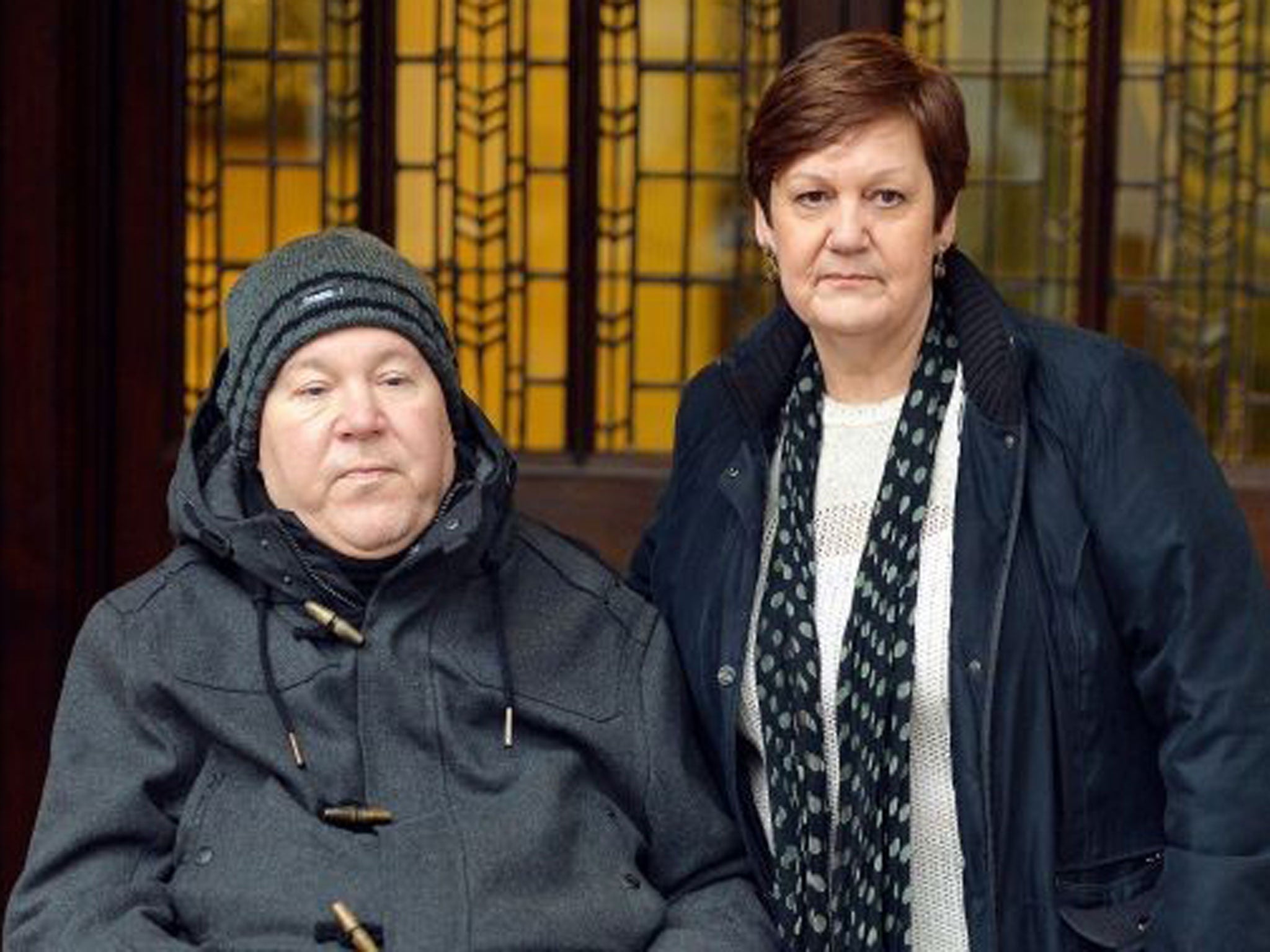Right-to-die case: Supreme Court hears case of Tony Nicklinson's widow and Paul Lamb
Campaigners argue the assisted suicide ban contravenes the European Convention on Human Rights

Your support helps us to tell the story
From reproductive rights to climate change to Big Tech, The Independent is on the ground when the story is developing. Whether it's investigating the financials of Elon Musk's pro-Trump PAC or producing our latest documentary, 'The A Word', which shines a light on the American women fighting for reproductive rights, we know how important it is to parse out the facts from the messaging.
At such a critical moment in US history, we need reporters on the ground. Your donation allows us to keep sending journalists to speak to both sides of the story.
The Independent is trusted by Americans across the entire political spectrum. And unlike many other quality news outlets, we choose not to lock Americans out of our reporting and analysis with paywalls. We believe quality journalism should be available to everyone, paid for by those who can afford it.
Your support makes all the difference.The UK's highest court will hear the case of a paralysed man who has joined the fight for the right to die, started by Tony Nicklinson.
Paul Lamb, from Leeds, can only move his right hand, and says he has been in significant pain since a car accident in 1990.
In July the Court of Appeal rejected the case started by Mr Nicklinson, the father-of-two paralysed by a stroke in 2005. The most high-profile campaigner for the right to die in the UK, he died at home in Melksham, Wiltshire, a week after the decision. He was 58.
On Monday, nine Supreme Court justices will hear the action brought by Mr Nicklinson's widow, Jane, and Mr Lamb, who has won the right to join the litigation.
Appeal judges dismissed the Nicklinson and Lamb challenges, but in a majority ruling allowed an appeal by a locked-in syndrome sufferer known as “Martin”, who had sought clarification of Director of Public Prosecution (DPP) guidance relating to the position of health professionals in assisted suicide cases.
In the ruling, the then Lord Chief Justice Lord Judge said Parliament “represents the conscience of the nation” in life and death issues, adding: “Judges, however eminent, do not; our responsibility is to discover the relevant legal principles, and apply the law as we find it.”
The complaint made by 49-year-old Martin, who cannot be named for legal reasons, was that the policy of the DPP “fails to provide sufficient clarity” as to the DPP's prosecution policy with respect to those persons who fell into the category of helpers who have no close or emotional connection with the victim - such as medical doctors and other professionals.
The issue in the case is whether the ban on assisted suicide in the Suicide Act 1961 is incompatible with Article 8 of the European Convention on Human Rights: the right to respect for private and family life.
To remedy this perceived clash, they say the 1961 act should have a “defence of necessity,” meaning it would not be unlawful for a doctor to assist, or to have assisted, in the suicide of Mr Lamb and Mr Nicklinson where they had made a “voluntary, clear, settled and informed wish” to end their lives, but were unable to do so without medical assistance.
Ms Nicklinson said it was important for her to finish her late husband's mission and, even if it was unsuccessful, it would pave the way for voluntary euthanasia to be legalised.
“I know that he'd be really pleased that we are seeing it through,” she said.
“It should be a matter of choice. I've had people who are similar to how Tony was come and say they fully support us, even though it's not what they want. They understand why we're doing it and feel that it's the right thing. Your life should be in your own hands, not someone else's.”
Join our commenting forum
Join thought-provoking conversations, follow other Independent readers and see their replies
Comments